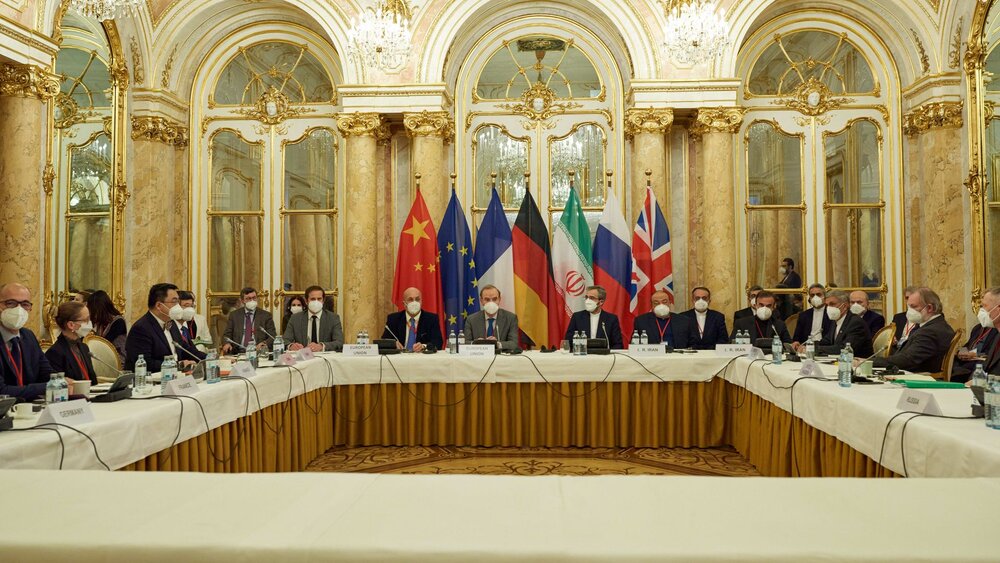European apathy toward Iranian proposals reveals much about Vienna talks

TEHRAN – Over the course of the current round of Vienna talks, the word “serious” has turned into one of the most important points of contention between Iran and its Western negotiating partners.
The question of who’s serious about the talks has shaped the whole state of things over the past tense days. While Iran has carefully sought to convey a message of seriousness, the other sides struck a pessimistic note and accused Iran of not seriously engaging in the talks.
This flip-flop is quite remarkable if compared with the West’s position only a few days ago about the talks. Within a brief period of roughly a week, they moved from demanding a swift conclusion of the negotiations to putting the blame on Tehran for not showing seriousness. This is while Iran has underlined the need to both bring the talks to a swift conclusion and show seriousness.
Apropos the swiftness, Iran has not only called for a swift and good agreement but also complained about Western foot-dragging on the negotiations.
In his Friday phone conversation with EU Foreign Policy chief Josep Borrell, Iranian Foreign Minister Hossein Amir Abdollahian described the process of talks as “good though slow.”
He added that the Iranian delegation is participating in the negotiations actively and in good faith as well as with necessary powers and achievable and progress initiatives.
“We believe that a good deal is at hand but it requires a shift by some parties away from the language of threat to the language of cooperation and mutual respect that would be also result-based,” he added.
Earlier on Thursday, he had reiterated the same position on Twitter, saying that the “Vienna Talks proceeding with seriousness and sanctions removal as fundamental priority.”
He then noted, “Good deal within reach if the West shows good will. We seek rational, sober & result-oriented dialogue.”
But Iran’s seriousness and willingness for a swift and good deal were met with apathy and indifference on the part of the West.
Iran has presented two draft proposals regarding sanctions- and nuclear-related steps to be taken if talks were to lead to an agreement. In a bid to push the talks forward, Iran drafted the proposals in strict accordance with the terms of a 2015 nuclear deal officially known as the Joint Comprehensive Plan of Action (JCPOA), according to Press TV.
The state-run news television, quoting a source with knowledge of the Vienna talks, said the Iranian-drafted proposals are “in full conformity with the 2015 nuclear agreement and the principles contained therein.”
The source lamented a lack of seriousness on the European side. “Regrettably, some European parties have mistaken the negotiating table for a platform to dictate their positions and demands,” the source said, adding, “Some parties have not come to the diplomatic maturity that the survival and endurance of the JCPOA depend on the commitment of all parties to their obligations, and some parties’ refusal to implement their commitments indicates that they are not serious in the negotiations.”
Iran also prepared a third proposal but it has not put it on the table yet. It seems that putting forth this proposal is dependent on the West’s response to the previous proposals.
But what is the reaction of the West to the Iranian proposals? The answer to this question was given by French President Emmanuel Macron during his visit to Dubai. Speaking to reporters, Macron claimed that the current round of talks had not been successful, and hinted that there would be a delay before the next round took place.
“I think it's probable that this round of negotiations, given the positions, does not succeed,” Macron said according to Reuters. “It is most likely that these negotiations do not continue in the short term.”
Western media has been preparing for this moment even before the talks began. They accused Iran of pursuing “maximalist” demands, a claim that Iran has rejected repeatedly. Iran has signaled that its proposals are logical and proportionate given the U.S. track record in backing down on its word.
Iran’s balanced and carefully drafted proposals, however, fell on deaf ears in Vienna. It seems that the blame game that Iranian media had already warned about is in the pipeline, with the Europeans, in particular France, taking the lead. The U.S. and its European allies may resort once again to the language of threat against Iran in the hope that they would succeed in making Tehran bow to their pressures. But if history is any guide, they will fail.
